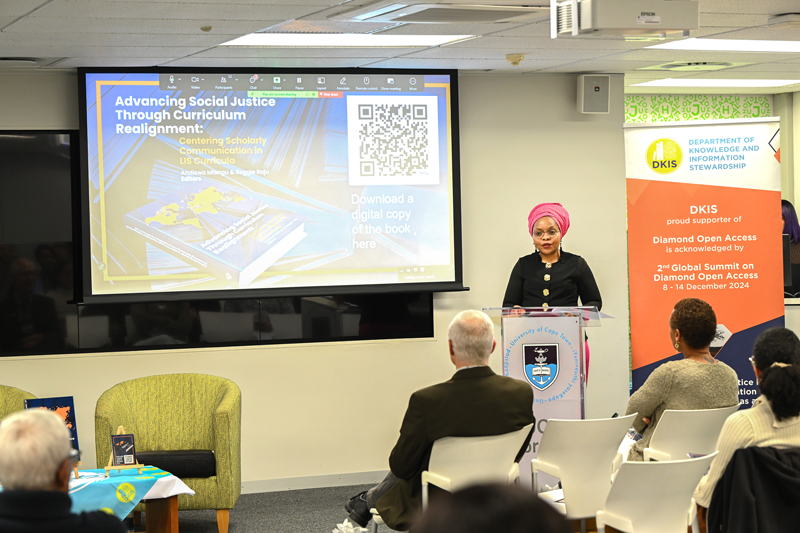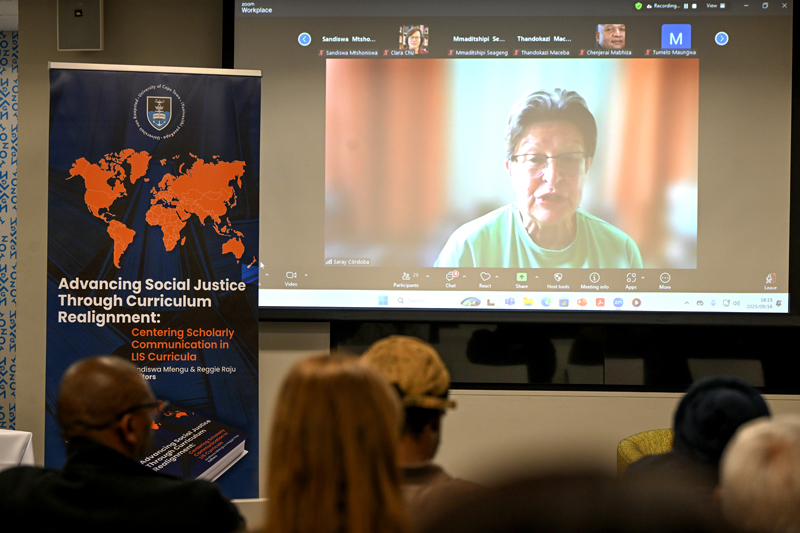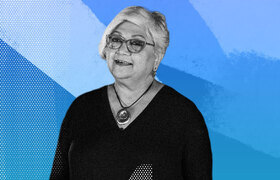UCT champions access and inclusivity in scholarship
23 September 2025 | Story Myolisi Gophe. Photos Lerato Maduna. Voice Cwenga Koyana. Read time 5 min.
The University of Cape Town (UCT) continues to advance its commitment to access, inclusivity and social justice in higher education through the recent publication of Advancing Social Justice Through Curriculum Realignment: Centring Scholarly Communication in LIS Curricula.
The multilingual, open-access book reflects UCT’s values of breaking down barriers in knowledge sharing. Freely available and published in English, Spanish, Portuguese and SeTswana, it challenges exclusionary practices and broadens the reach of academic dialogue.
Edited by Dr Andiswa Mfengu, head of the department of Knowledge and Information Stewardship (DKIS), and Dr Reggie Raju, director of Research and Learning at UCT Libraries, the book grew out of the Library and Information Science (LIS) education segment of the 2nd Global Summit on Diamond Open Access, hosted at UCT in December 2024. Contributions from Africa, Latin America, Europe, North America and Australasia highlight its role in building a truly global conversation about social justice in education and research.

The volume – a collaboration between UCT Libraries and the DKIS in the Faculty of Humanities – is multilingual, open-access, and freely available to all, underscoring UCT’s commitment to inclusive knowledge sharing. Through 19 essays by 23 authors, the collection captures debates on how scholarly communication can be centred in LIS curricula to strengthen capacity-building for current and future professionals.
“It affirms that knowledge must not only be created for the privileged few but must circulate in every classroom, community and country that can benefit from it.”
“This book is more than pages and print – it is a vehicle of inclusion, a tool of transformation, and a loud, proud step toward UCT’s vision: a future that is accessible, inclusive and deeply rooted in social justice,” said Professor Brandon Collier-Reed, Deputy Vice-Chancellor for Teaching and Learning.
Breaking down barriers
Professor Collier-Reed emphasised that making the book open access breaks down barriers between universities and the public. “It bridges the gap between the perception of universities as ivory towers and the communities we serve. It affirms that knowledge must not only be created for the privileged few but must circulate in every classroom, community and country that can benefit from it.”
He further noted that the multilingual nature of the book aligns with UCT’s transformative agenda. “As a university with three official languages – English, isiXhosa and Afrikaans – this multilingualism reflects our inclusivity goals. Accessibility, inclusivity, multilingualism and transformation are not optional add-ons – they are foundational principles that must guide every publication that bears the iconic UCT name.”

For Dr Mfengu, inclusivity is at the heart of the project. “This collection interrogates the concepts of social justice within the LIS disciplinary framework and examines the relationship between scholarly communication, decolonisation and research impact.”
Mfengu highlighted the collaborative spirit behind the book, acknowledging the role of authors, peer reviewers, conference partners and UCT Libraries Press in bringing the project to life.
“The academy thrives on rigorous inquiry and critical engagement,” she said. “This book reflects those values while also extending the conversation to students, practitioners and communities.”
Professor Shose Kessi, Dean of Humanities, reinforced this point. “By publishing in multiple languages and open access, you are putting into action the very meaning of decolonisation in knowledge production. You are amplifying voices that have been historically marginalised and expanding the circle of contributors to global scholarship.”
Professor Kessi added that the book exemplifies epistemic justice.
“This work not only interrogates existing systems but also dismantles colonial knowledge structures by promoting epistemic diversity. It is a reminder that diversity – in politics, academia, and society – is our strength.”
The recent launch of Advancing Social Justice Through Curriculum Realignment marks an important moment for UCT Libraries Press, which oversaw the full publishing process – from peer review to production – for the first time. It also signals UCT’s growing role in reimagining the place of African scholarship in global conversations about open access, multilingualism and transformation.
“May this book travel far,” Collier-Reed said in closing. “May it teach boldly. And may it help build the inclusive future that UCT is striving for – page by powerful page.”
 This work is licensed under a Creative Commons Attribution-NoDerivatives 4.0 International License.
This work is licensed under a Creative Commons Attribution-NoDerivatives 4.0 International License.
Please view the republishing articles page for more information.
Related










